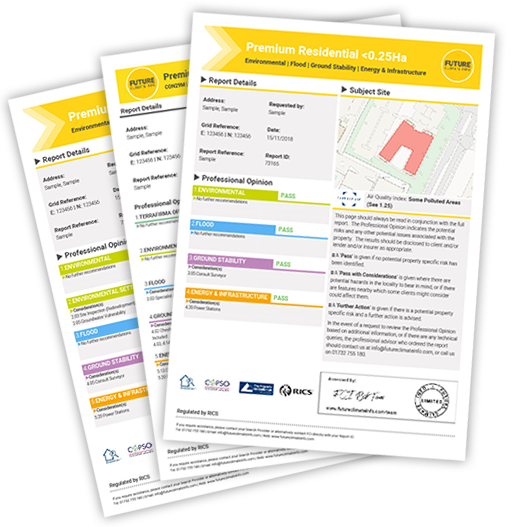The Government has announced new funding to speed up the house building process, aiming to overcome the roadblocks from potential contamination on brownfield land. We provide an assessment on how this renewed focus on brownfield incentives will extend to commercial property due diligence.
What funds have been announced?
Barclays Bank has announced that they are working in partnership with the Government to offer finance to small- and medium-sized housing developers. The £1 billion Housing Delivery Fund aims to support developers to make confident choices on site viability.
Homes England, which is committing £125m to the funding pot, will administer the scheme and provide funding between £5m and £100m for new homes, including social housing, retirement living and apartments to rent. The funds form part of the promise to deliver 300,000 homes a year by the mid-2020s.
In addition, the £1.3 billion Land Assembly Fund will be also used to acquire land that needs work and prepare it for the market.
The £630 million Small Sites Fund is designed to get the right infrastructure in place to help public landowners and local authorities that are struggling to build on land in their area.
Approaching Brownfield with More Confidence
James Brokenshire, the new Housing Minister, recognises that developers face many perceived obstacles when it comes to seeking permission to develop on brownfield sites. The aim is to de-risk the viability concerns from potential historic contamination.
Brownfield Land has been a priority in land use zoning by Local planning Authorities (LPAs) for a number of years, but it has been boosted by reinforced guidance within the revised National Planning Policy Framework (NPPF) earlier this year.
There are strong economic and social arguments for revitalising urban centres and placing higher density affordable dwellings for residents that can walk to work or use public transport to minimise traffic and pollution loads on cities.
These initiatives are all to be welcomed, as they prevent sprawl and make good use of sites that can often be over-hyped in terms of their potential contaminative risk.
With renewed funding vigour, commercial property lawyers and their developer or investor clients, should approach site viability on the basis of what can be achieved, rather than what can’t.
Combining Risk Data with Solutions
This means an even handed approach to land quality due diligence ahead of site acquisition to fully understand a site’s historic use. But it also means a realistic assessment of how significant any contaminative risk really is, its proximity to sensitive receptors and the level of remedial work which may be necessary.
A combination of desktop risk assessment and options for more detailed investigation including soil testing and gas monitoring is a good starting point. However, as sites get more complex, contaminated land insurance can be used to provide greater certainty to the transaction, helping the client to make an informed decision. In the event, that remediation is required, some companies can now use data and insurance to provide fixed fees, thus taking the uncertainty away from open ended contracts.
We know that Government funding will not be a blank cheque for remediation, whatever the situation. Developers need assurance that other mechanisms like tailored contaminated land insurance, built on specific site risk assessment, is there to support when they need it.
Future Climate Info’s commercial environmental reports provide a comprehensive, yet concise and clear assessment of site history, potential for contamination and, as a result, follow-on options for more detailed testing or insurance provision.
The Government is seeking imaginative solutions to overcome obstacles in the planning and financing of brownfield projects. We are all about matching this with easy, intelligent commercial environmental risk solutions that keep the transaction going and provide support to unlock funding and planning consent quicker.
For more information on Future Climate Info’s Commercial Environmental Risk Reports, Site Survey and Insurance Solutions, contact us on 01732 755 180 or email us at info@futureclimateinfo.com


